Subtotal: KSh 1,350.00
Custard Apple Fruit Seedling
Custard Apple Fruit Seedling
Annona reticulata
Have custard apple at hand on your balcony or verandah!
This grafted fruit seedlings will come to the if watered and fed carefully. This fruit seedling will bear fruit after about three to four years.
Outdoor planted care: Plant in full sun into the ground or into at least get it in our Terracotta Super Large Pot in well draining soil. Water thoroughly throughout the first year.
– Custard Apple, soil, plastic bag (not potted) or with terracotta pot with drainage hole (potted)
– Organically grafted and grown in Kenya, shipped only within Kenya
– Under no circumstances must the graft union ever be in contact with the soil or with mulching material if applied. May repotted tree after 3 years or place in the shamba in well drained fertile soil.
Average height of seedling 50 cm height 40 cm diameter, pot size is 12″ x 12″
KSh 300.00
CompareKenya custard apple emanates from the Annona family with origins in Central America. Its scientific name is annona reticulate and its local etymology is matomoko, a bunchy fruit consisting of several overlapping cone-like berries in every pistil. The fruit derives its popular appeal from its sweet, soft whitish creamy flesh. The custard apple tree is bunchy with glossy dark green leaves, rounded crown, a trunk that is 25-35 cm in width, with a height of 15-35 feet, topped with a large spread of canopy.
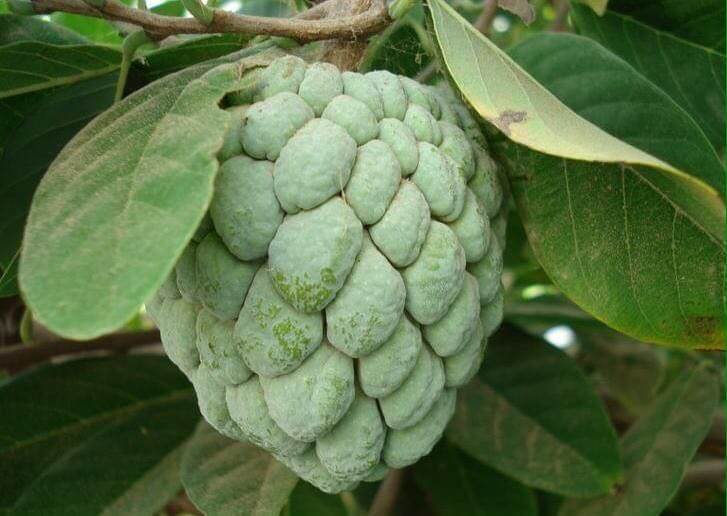
With its greenish yellowish flowers, custard apple conforms to the ‘wild oats’ phenomenon for producing multiple fruits, each cluster developing from individual flowers that sprout into a huge fruit bunch.
The fruit does well in most parts of Kenya as it is preconditioned to grow in tropical and some temperate climes. Even though custard apples prefer humid conditions, it is possible to grow them in semi-arid regions. This is where the soil is aerated, well-drained, and loamy with high natural mineral composition, though even some varieties can perform in poor soils. The pH range suitable for optimal growth is from 5.0 to 8.0.
Custard apples suffer from skin discoloration and splitting when under temperature strains lower than 13 degrees Celsius in the later stages of fruit development. To reduce this problem, sites with relatively warm temperatures are recommended.
Temperatures of 25 degrees Celcius, during flowering (from October to February) are favorable for good fruition. At temperatures beyond 28 degrees Celcius, custard apples produce more exuberance in stem and canopy but fewer flowers, leading to the drying of some parts, a reason they do not thrive in coastal tropical areas and hot inland regions.
It is essential to ensure soil moisture is available, consistently, during the fruit setting and maturation stages to hike yields and lower fruit splitting. The remedy for the best Kenya custard apple variety is irrigation.
Health benefits
- It contains anti-oxides like vitamin c which helps fight free radicals in the body
- Custard apples contain potassium and magnesium which protect our hearts from cardiac diseases.
- Contain vitamin A which keeps your skin and hair healthy.
- Helps in weight loss because it`s low in fats and cholesterol free.
- Custard apples prevent expectant women from premature labour.
- Their paste can be used for local application on ulcers, abscesses and boils.
- Helps in building a good digestive system.
- Remedy for Diarrheaand Dysentery
Important: never consume custard apple seeds due to their poisonous levels. Additionally, diabetic persons should take little quantities to stem the high starch levels of the fruit.
At Pasharn Fruit Nursery Kenya, every day is a holiday with fruits of any variety including custard apples. Come one; come all for Kenya custard apples, straight from family growers.
What You Should Know About Custard Apple
(Matomoko)Farming in Kenya
Custard apple farming is gaining attention from a large number of farmers since it’s highly profitable. Farmers in in different parts of the country are shifting from traditional crops to custard apple. With a ready market and premium prices in the international market, the venture can be highly remunerative.
Ecological requirements
Rainfall: The crop thrives in moderate and well-distributed rainfall. However, it withstands heavy rainfall and drought. This means that it can be grown under irrigation in dry areas.
Temperature:The plant thrives in temperatures ranging from 150C – 300C. Custard apple is sensitive to extremely low temperatures. A hot dry climate enhances flowering and fruit set.
Wind: Custard is sensitive to extreme winds. The branches can easily break which will affect pollination. Planting wind breakers around custard apple orchards is recommended.
Soil requirements: Although it grows in a wide range of soils, it thrives in deep and well-drained soils with a pH range of 5.0 – 8.0. The crop can withstand a little salinity or acidity. Marshy-wetlands, poor drainage, and alkalinity, however, hamper vegetative growth and fruiting.
Spacing and Planting
Custard plants require a spacing of 4m x 4m or 6m x 6m. Planting holes should have a diameter of 60cm x 60cm and 60cm deep. The topsoil should be mixed with well-decomposed manure to improve soil fertility and aeration. This means that an acre can occupy between 150 – 300 trees depending on the spacing.
Weeding
Custard orchards should be weed-free. Planting cover crops and mulching is recommended to minimize the growth of weeds.
Varieties
Custard varieties that perform well in Kenya include;
- Hybrid
- Washington
- Balanagar
- Red Sitaphal
Maturity Of Custard Apple
Custard trees start bearing three to four years after planting. Grafted varieties are capable of producing yields two years after planting.
Pests and Diseases
Just like other fruits, custard are susceptible to a number of pests and diseases such as:
Pests
Some of the pests that attack these plants include;
- Trunk and fruit borer
- Spider mites
- Aphids
- Thrips
Diseases
Some of the diseases that affect custard plants include;
- Leafspot
- Blackstone
- Anthracnose
- Root rot
Production and Output
Custard is a climacteric fruit and should be harvested at maturity. Immature fruits do not ripen and hence it should be avoid. The yield from custard apple plants depends on farming techniques employed and ecological conditions. On average, a mature tree can produce 100 fruits weighing 300grams – 400grams. This equates to 30kgs per tree. During the off season, the prices of custard apple fruits range from Ksh 80 – Ksh 130 per kilo. This means that a farmer can pocket between Ksh 720,000 – Ksh 1,170,000 from one acre.
Package cost
Establishing a custard orchard has never been easy. Pasharn has simplified the establishment process by coming up with a package that helps farmers successfully venture into custard apple farming with ease.
The package costs Ksh 37,000 for one acre.
WHAT IS INCLUDED IN THE PACKAGE?
- Free consultancy
- 200 certified and high-quality custard apple seedlings
- Labor (measurement and digging of planting holes, soil treatment and testing, planting) (50% discount offered)
- Organic manure (earthlee) equivalent to one bucket of normal manure (30% discount offered)
- Lifetime agronomy support
- Market connection
Marketing
The demand for custard apple in the local and export market is yet to be met. In Kenya, the fruits can be spotted in major markets in Nairobi. Europe provides the largest market for Kenyan custard apple fruits.


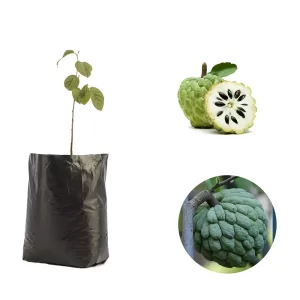 Custard Apple Fruit Seedling
Custard Apple Fruit Seedling 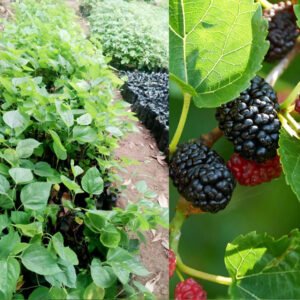 Mulberry seedlings
Mulberry seedlings 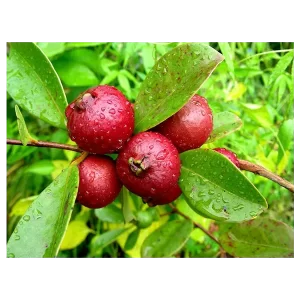 Cherry Guava Seedlings
Cherry Guava Seedlings  Grapes seedlings
Grapes seedlings 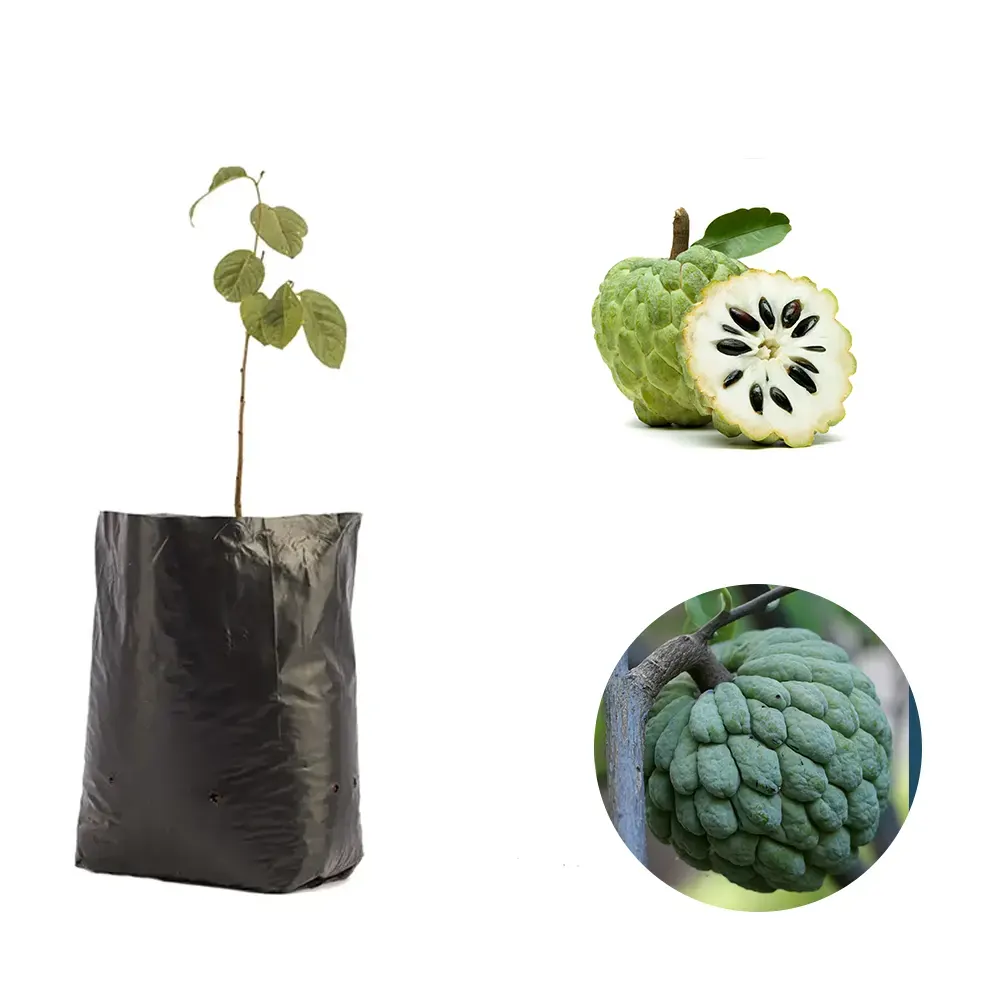

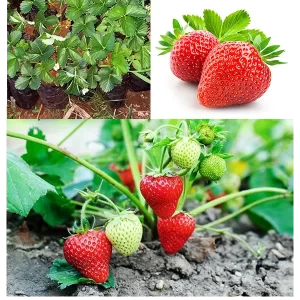
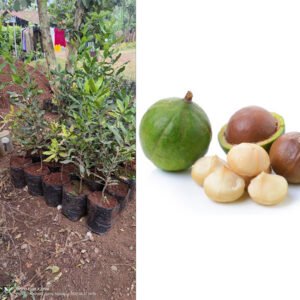
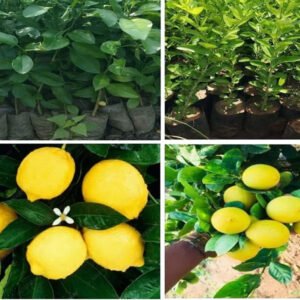
There are no reviews yet.